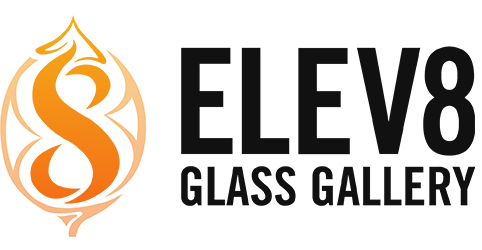An inline is pretty simple. It is a perc that has slits on the top or bottom with a grid pattern that runs the length of the water pipe. To see all or percs visit our glass terms blog
There must be a pin hole in the weld. This is very rare, but it happens to the best of the blowers. Again, it is rare.
The Torch is the number 1 tool for blowing glass, then the kiln. Next I feel a graphite pade, graphite push or graphite rod, but a set of tweezers and squeezers are a must in my point. See all the tools in our blog here.
The bottom is kinda a trade secret. Basically from what we know as glassblowers they put tubes inside of a very large tube and suck all the airt out, but no in the tubes, just in between the tubes. It is not easy.
It all depends on the cost of the minerals. On average UV and Florescent changing glass costs about the same. It all depends on the manufacturer and what they charge. Each color can vary, even if it is not UV or Florescent reactive.
If you mean to color it or add to it yes. Gold can only be fumed on boro, but gold leaf can be applied to soft glass as it will not get as hot as boro.
This can happen more so if different colors are used as they have different COEs. Other times this can happen if the weld was not done well. Other times this can happen from hitting the glass at a bad angle. When looking at a seal, always look to see if there is a butt. If …
Continue reading “Why do some pieces of glass break right at the seals?”
This really comes down to the skillset the blower has. Neither is easier than the other. A cone bowl usually has a handle so that it can be held without getting hot, while a push bowl usually does not have a handle as the outside does not get hot like the inside as it is …
The cooling effect comes from the smoke or vapor having more surface contact with the water. Percolation is what really helps this and the smaller the bubbles the more surface area there is. The more air bubbles the cooler and more filtered the smoke or vapor will be.
On the Mohs scale of mineral hardness which rates a diamond as 10 and chalk as 1, borosilicate comes in at 7.5 and the other types of glass at 6.
